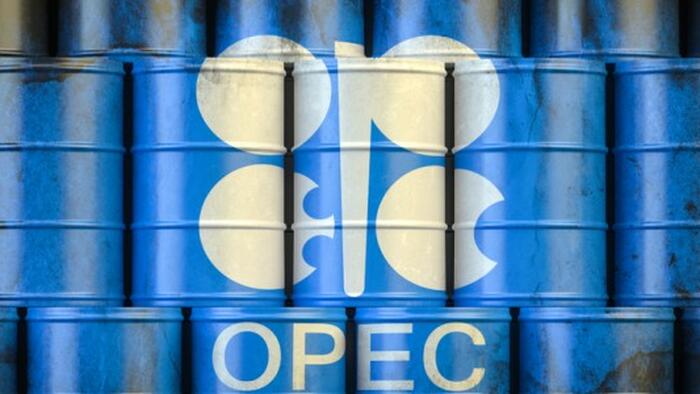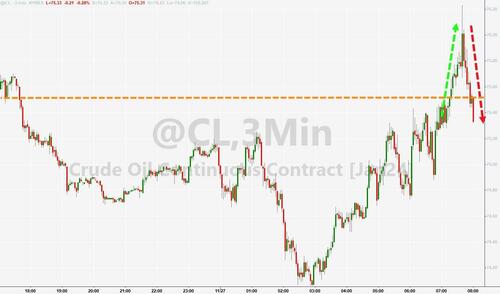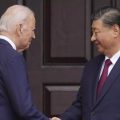Picking up on what the FT reported last week, namely that OPEC+ is considering an additional 1 million bpd oil production cut, moments ago Bloomberg added some color on that story and also on why the OPEC+ meeting which was supposed to take place over the weekend was delayed, when it reported that Saudi Arabia is asking others OPEC+ members to reduce their oil-output quotas in a bid to shore up global markets but some oil producers are resisting.
The OPEC+ leader – which has been at the forefront of what is now dubbed the OPEC+ put…
… has been making a largely unilateral supply cutback of 1 million barrels a day since July, and is now seeking further support from across the oil producing cartel and its partners (mostly Russia), said anonymous delegate sources.
The Bloomberg report goes on to note that the Saudi proposal comes amid difficult talks for the producers’ group, which was forced to delay its policy meeting by four days to Nov. 30 as Angola and Nigeria resist reductions to their own quota limits for 2024, which were set out at the cartel’s last conference in June. Some speculated that the internal conflict may even lead to several members leaving the cartel, although the latest news is that the producers were progressing toward a compromise on this matter before the weekend, but have yet to clinch an agreement.
In any case, the 23-nation OPEC+ alliance faces pressure to intervene in crude markets, following a 17% drop in prices over the past two months amid plentiful supplies and what Bloomberg calls a “darkening economic backdrop”, which is ironic since the same Bloomberg keeps praising the economy when it comes to Joe Biden’s politics. Markets could weaken further in early 2024, when forecasters including the International Energy Agency anticipate the emergence of a new supply surplus.
With Saudi Arabia’s voluntary production cut of 1 million barrels a day, implemented in tandem with a 300,000 barrel-a-day export reduction from Russia, set to continue until the end of the year, most analysts expect Riyadh and Moscow to extend those curbs into 2024.
Meanwhile, as reported previously, JPMorgan’s commodity team has flagged the possibility that OPEC+ may cut deeper, and some — such as Commerzbank AG and hedge fund manager Pierre Andurand — have warned that prices may buckle further if they don’t. Brent futures traded near $80 a barrel on Monday.
Supply reductions across the alliance would probably win back oil bulls, but they could be hard to orchestrate. Iraq, Russia and Kazakhstan have recently been pumping over their quotas, while others like the African members have lost so much production capacity they’re in no position to cut further.
The price oil oil briefly pumped to session highs on the Bloomberg report, then quickly dumped as it always does in kneejerk reaction to speculation – not fact – that OPEC+ may cut more output as the market is hard-wired to interpret this as an indication that if the oil producers are set to trim production more then it means that demand is collapsing and so you must sell, in the process making even more output cuts likely and so on.
Loading…




